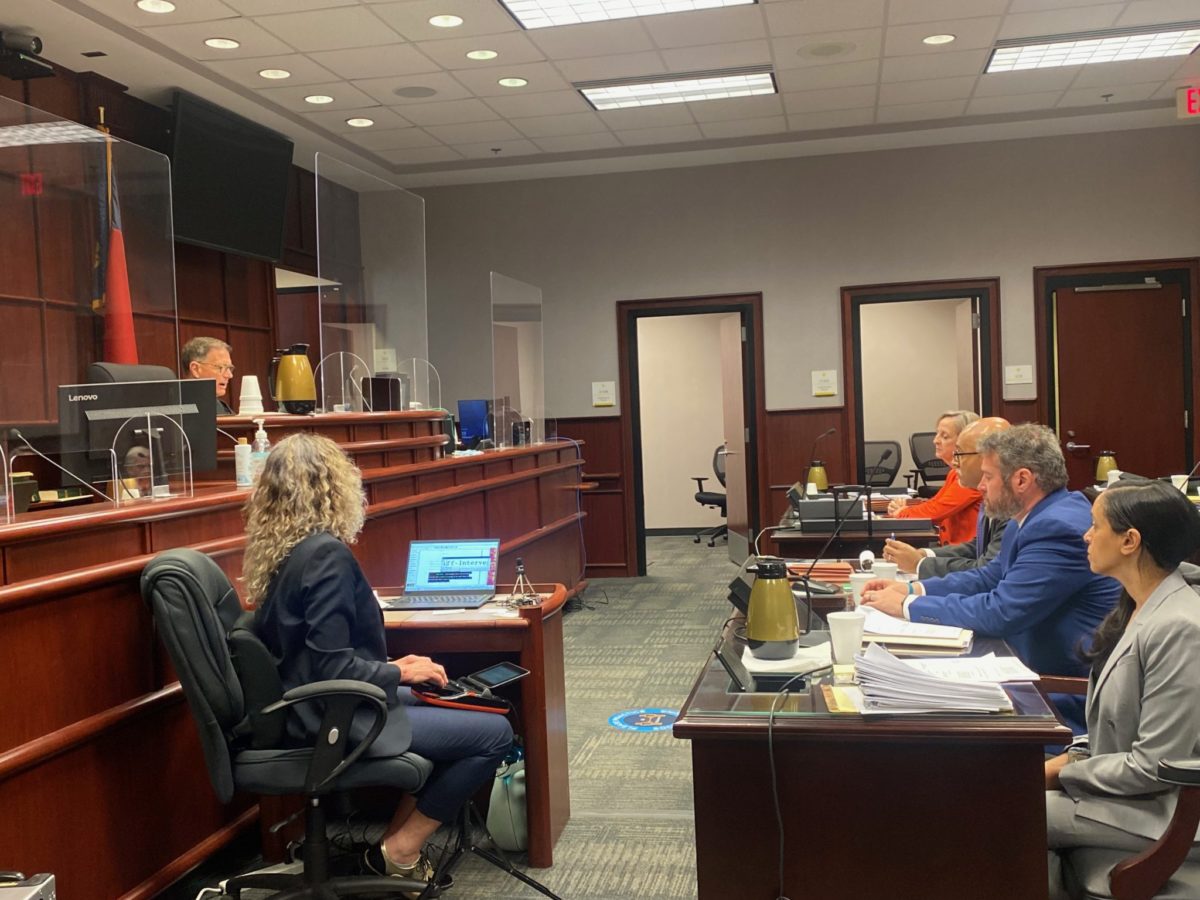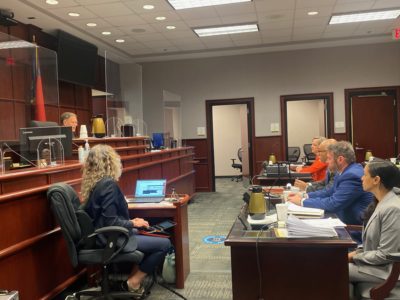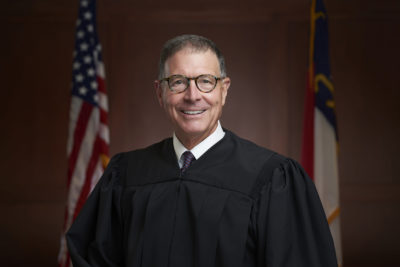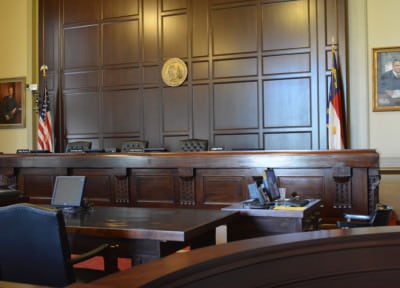

Share this story
- Judge Michael Robinson found that the budget passed by lawmakers late last year underfunds a comprehensive plan in the Leandro case by hundreds of millions. But he also says that state officials shouldn't be forced to hand over that money for the plan. #nced
- The Leandro case is heading back to the Supreme Court. Find out what Judge Michael Robinson had to say about funding for a comprehensive remedial plan in the case. #nced
Judge Michael Robinson has found that the state budget passed last year underfunds a comprehensive remedial plan (CRP) in the long-running Leandro case by about $785 million — or about half of what was necessary to comply with a judicial order.
Robinson amended Judge David Lee’s Nov. 10, 2021 order — which said that North Carolina leaders must transfer about $1.7 billion to fund the CRP — to reflect the money that counts toward the CRP from the budget, which was passed after Lee’s order. He also amended the order to reflect a Court of Appeals ruling that Lee couldn’t order North Carolina Controller Linda Combs to transfer the $1.7 billion from the state’s General Fund.
Lee’s order had directed the state budget director, controller, and treasurer to transfer the money. Robinson’s amended order removes that directive.
“The Court of Appeals has determined that the trial court had no proper basis in law to direct the transfer by State officers or departments of funds to DHHS, DPI, and the UNC System,” Robinson’s order states. “As such, this Court concludes that the 10 November Order should be amended to remove a directive that State officers or employees transfer funds from the State Treasury to fully fund the CRP but should amend the 10 November Order to determine that the State of North Carolina has failed to comply with the trial court’s prior order to fully fund years 2 and 3 of the CRP.”
The Leandro case began nearly 30 years ago when families from five low-wealth counties sued the state, saying it was not meeting its obligation to educate all students equally. The state Supreme Court has previously said in the case that North Carolina’s children have a fundamental right to the “opportunity to receive a sound basic education” and that the state had not lived up to that constitutional requirement.
The CRP was an attempt by plaintiffs and defendants in the case to come to an agreement on how to ensure that “opportunity.”
Back in March, the state Supreme Court agreed to take up the Leandro case for the third time since the case started in 1994. But first, it sent the case back to Superior Court for 30 days, asking the judge to see if the passage of the budget should have an impact on Lee’s order. However, instead of going back to Lee’s court, the case went to Robinson after Supreme Court Chief Justice Paul Newby, a Republican, ordered it reassigned. Lee is a registered Democrat and Robinson is a Republican.
Robinson has had the task of getting up to speed with the case while fielding arguments from attorneys as to what exactly the Supreme Court wanted him to do. Attorneys for state lawmakers argued that his scope was very broad, and that the viability of the comprehensive remedial plan should be considered. Meanwhile, attorneys for the plaintiffs and the defendants (the state as represented by the Attorney General’s Office, and the State Board of Education) argued that Robinson’s task amounted to a math problem: They said he was to simply subtract from the CRP the amount of money allocated to its line items from the budget passed late in 2o21.
The two sides didn’t necessarily agree on how much of the CRP was funded by the budget.
In the end, Robinson didn’t quite adhere to either side’s argument, choosing to figure out the math problem and amend the order to reflect his belief that the Court of Appeal’s ruling is in effect until another court says otherwise.
The case now goes back to the North Carolina Supreme Court.




